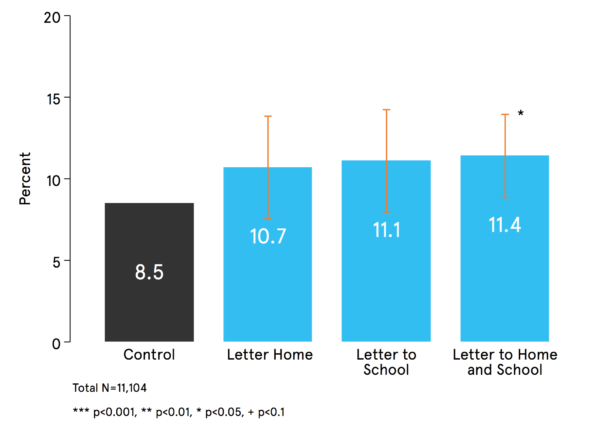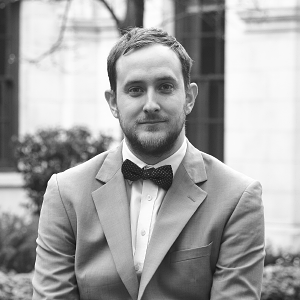Young people from lower income families, or families without a history of university attendance, are much less likely to apply to university than their peers, even when they get the grades to do so (Anders, 2012). They’re also particularly less likely to apply to selective universities – despite these universities often offering more generous financial support.
Previous research, including ours, has shown that providing students with a positive role model – someone like them who has been to university and has benefited – can significantly boost enthusiasm for attending. In our previous research, a role model intervention was delivered through an assembly talk for year 12 or 13 students. Although it worked, it was difficult to take it to scale.
At about the same time, we started working with the Department for Education on a similar trial, with similar goals. In this trial, we were interested in 11,000 young people around the country who we thought were at risk of missing the opportunity to go to university. These young people had just received GCSE grades that put them on track to go to a good university, but were in schools where most students either didn’t go to university or went to their nearest university – a fairly good proxy for areas that lack aspiration. We wanted to see whether we could encourage students in these areas to apply and to aim higher.
To do this, the Department for Education sent out letters encouraging students to consider selective universities. A quarter of students got a hand-signed letter from Ben, a student at the University of Bristol, in November of their year 12, which was sent to their school. Another quarter got a hand-signed letter from another student, Rachel, sent to their home the following April, while a third quarter received both letters. The remaining students formed the control group.
After that, we had to wait for the students to move through year 13, at which point we were able to see how many students had applied to any university or selective universities, how many had been made an offer and how many had accepted.
The main findings of the study are:
- Students who received both letters were 3.3 percentage points more likely to apply to a selective university, and this result was statistically significant.
- Participants who received both treatments were also 2.9 percentage points more likely to accept an offer from a selective university than students in the control group. This result was also statistically significant.
- Across all the treatment groups we see increases, which are not statistically significant, in overall application rates to university, the rate at which students are made offers, and their likelihood of accepting them.
Overall, these findings show that a simple message of support and advice from the right messenger, delivered at the right time, can make a big difference to students’ lives. We estimate that as a result of the trial an extra 222 students will have gone to selective universities compared to if everyone had been in the control condition – at a cost of just £45 per additional student. Over the course of the next few years, we’re excited to work on further projects boosting participation in university.
The effect of letters from role models on rates of accepting offers from selective universities


